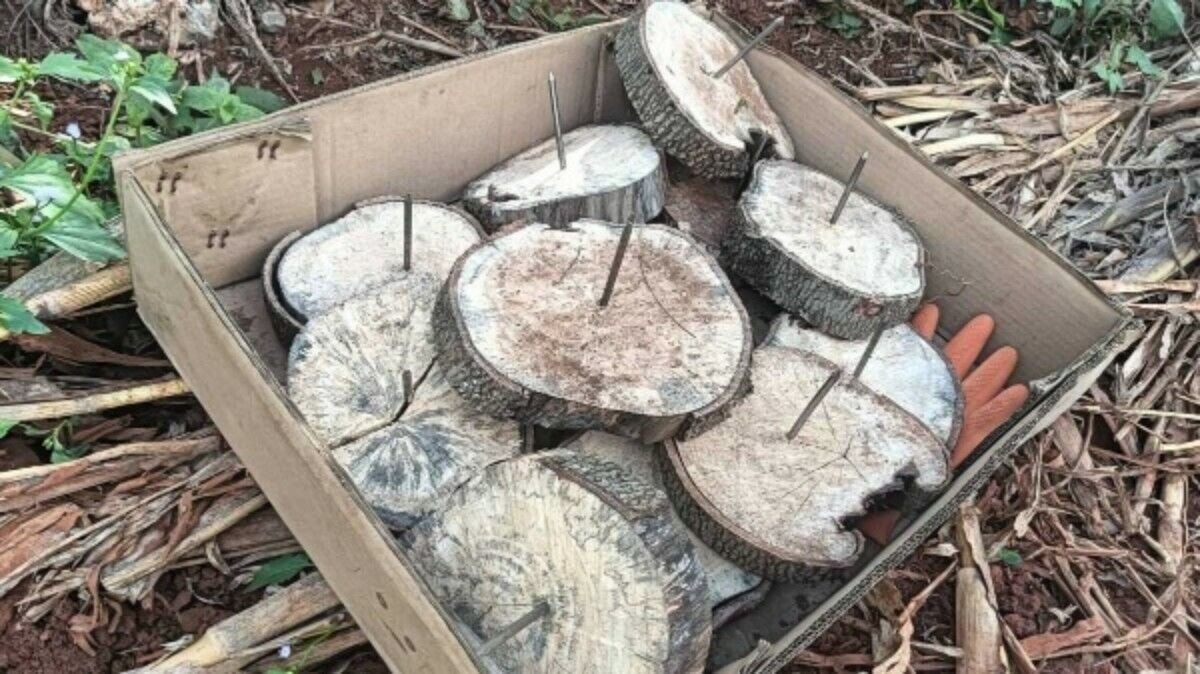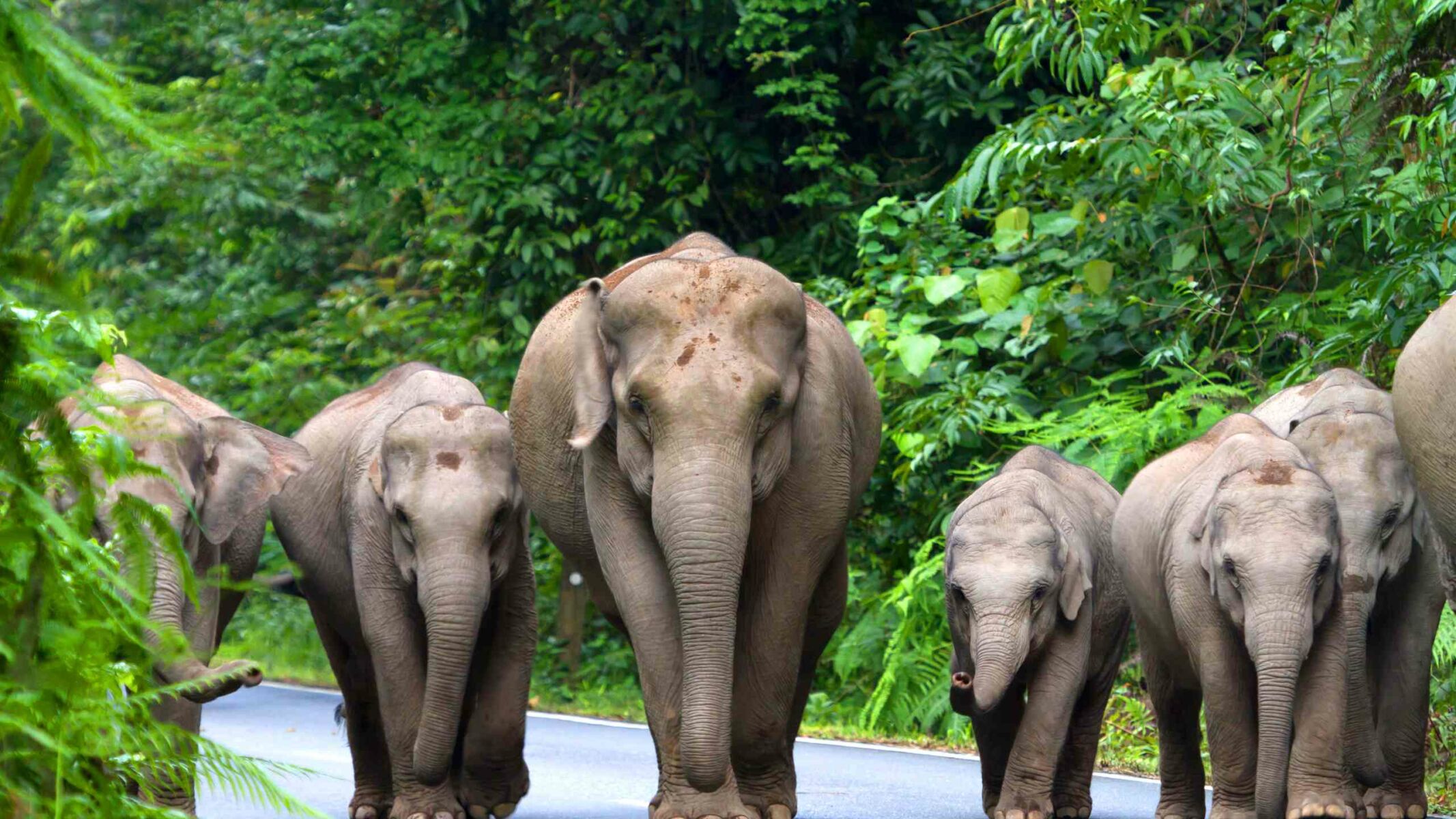Dangerous elephant traps found in Khao Yai National Park

Numerous dangerous elephant traps have been unearthed in Khao Yai National Park, prompting immediate action from park officials. Reports indicate that these traps, designed to injure wild elephants, were strategically placed by locals in areas frequented by the animals.
Chaiya Huaihongthong, head of Khao Yai National Park, received a tip-off from the community leader of Ban Mai Samakki in Village 2, Mu Si subdistrict, Pak Chong district, Nakhon Ratchasima province. The traps, constructed from circular wooden structures embedded with three-inch nails, were intended to cause harm to elephants by piercing their feet, leading potentially to fatal infections. Fortunately, the traps were spotted by a local who promptly reported them to the community leader.
Following this crucial information, park officials, accompanied by officers from Mu Si Police Station, conducted a
thorough search of the area. They discovered a total of 12 traps, each made with 4-inch nails driven into circular wooden bases. The team worked swiftly to remove these hazardous devices from the vicinity to prevent any harm to the wildlife and to gather evidence that could lead to the identification and prosecution of those responsible for setting the traps.
“These nail traps pose a significant threat to wild elephants. If a nail becomes rusty, it can cause severe infections in the elephants when they step on them, potentially leading to sepsis.”
Chaiya emphasised that such actions are illegal and warned of the severe consequences they could have on the elephant population.
Police have been actively engaging with local communities, encouraging them to refrain from using violence against wildlife. Efforts have been made to foster a better understanding and cooperation among residents, advocating for non-violent solutions to human-wildlife conflicts. Volunteer groups and relevant agencies have been employed to monitor the movement of wild elephants and to ensure the safety of both the community and the animals.
Chaiya’s team is committed to pursuing the perpetrators of these acts, utilising the evidence collected during their investigation to bring justice and prevent future incidents. The park officials stress the importance of living in harmony with wildlife, and they continue to work closely with the local community to promote peaceful coexistence, reported KhaoSod.

What Other Media Are Saying
- FairPlanet highlights Thailand’s tiger conservation success amid poaching challenges, noting a rise in tiger populations due to strategic monitoring and community collaboration while emphasising the urgent need for continued protective measures. (read more)
- Bangkok Post highlights the challenging efforts of park officials and volunteers in dismembering dead elephants at Haew Narok waterfall, emphasising the impact of heavy rains on the recovery operation. (read more)
Frequently Asked Questions
Here are some common questions asked about this news.
Why might locals resort to setting traps for elephants in Khao Yai National Park?
Locals might use traps due to conflicts with wildlife, potentially over crop damage or safety concerns.
How can communities coexist peacefully with elephants in areas surrounding national parks?
Communities can adopt non-violent conflict resolution strategies and engage in wildlife monitoring and educational initiatives.
What if the traps had not been discovered by the locals?
Undetected traps could have caused severe injuries or fatalities to elephants, impacting their population and ecosystem balance.
How do park officials plan to prevent future incidents of wildlife trapping?
Officials aim to increase community awareness, enhance monitoring, and prosecute offenders to deter future trapping.
What role do volunteer groups play in protecting elephants in Khao Yai National Park?
Volunteer groups help monitor elephant movements, promote safety, and support community education on peaceful coexistence.
Latest Thailand News
Follow The Thaiger on Google News:


























